Environmental Sustainability
Under the impact of climate change, the world is increasingly facing severe climate disasters with affected regions and populations expanding gradually. Therefore, how to limit global warming to within 1.5˚C by the end of this century and take proactive actions is a common challenge for everyone. In response to international trends and stakeholders' concerns, SOLAR adopted the concepts and framework of the Task Force on Climate-related Financial Disclosures (TCFD) in 2022. By incorporating governance, strategy, risk management, and setting metrics and targets, SOLAR gradually assessed and clarified the risks and opportunities associated with climate change. Furthermore, SOLAR presented corresponding management measures to enhance our operational resilience.
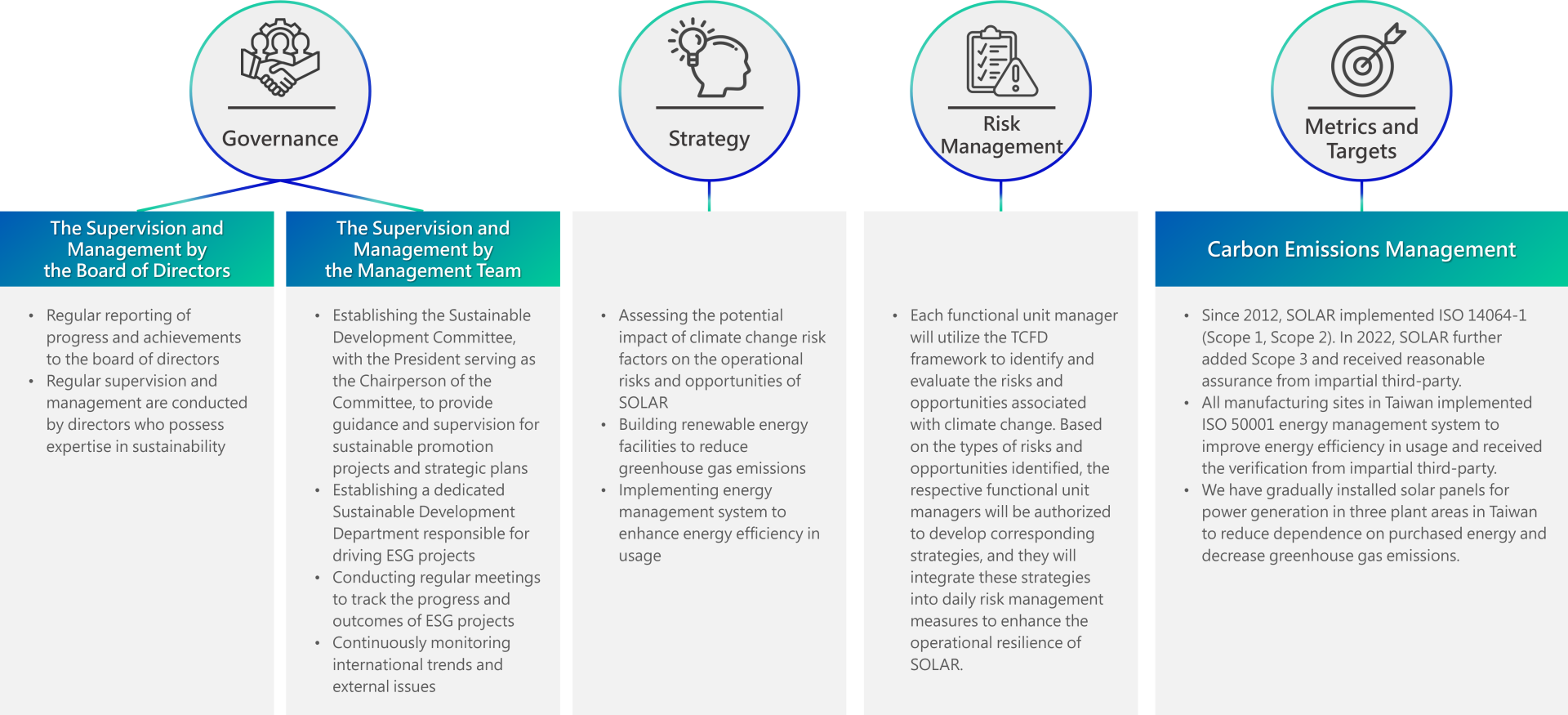
Energy Management

● SOLAR's Energy-Saving Targets for 2024: ≥1%
● SOLAR's greenhouse gas reduction achievement in 2024: ≥1%
Effective Use of Energy
Efficient use of energy is essential to mitigate the impact of climate change, as the use of energy generates carbon dioxide and causes the greenhouse effect. Recognizing that energy management is a crucial part of business operations, SOLAR actively engages in energy saving initiatives, including the construction of solar energy facilities, the use of renewable energy and the continuous introduction of various energy-saving technologies and facilities.
SOLAR has established the Energy Management Committee, with the President serving as the Chairperson. The committee should hold quarterly meetings to regularly review compliance with regulations, track the progress of energy-saving action plans, and assess the effectiveness of project implementation. Furthermore, SOLAR takes a proactive approach to equipment procurement and design, conducting reviews to ensure the use of energy-efficient power components and controlling the energy consumption standards of newly acquired equipments. We also conduct energy audits to assess the energy consumption of current equipments, identify significant energy-consuming equipments, and review energy-saving improvement plans to achieve energy management objectives.
Use of Renewable Energy
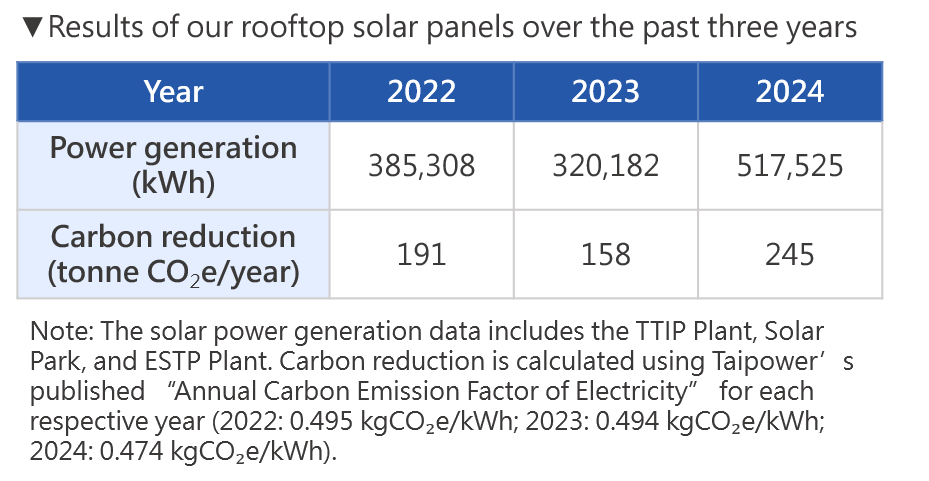
- In 2024, SOLAR has made a new investment in solar photovoltaic systems, with the investment amount exceeding NT$95 million.
In 2024, SOLAR’s GHG emissions under Scope 1 and Scope 2 reached 34,660 tCO2e, representing a 5.2% increase compared to the previous year. Scope 3 emissions amounted to 236,256 tCO2e and were verified by an independent third-party organization (BSI) in 2025, with a verification statement issued at a reasonable assurance level.
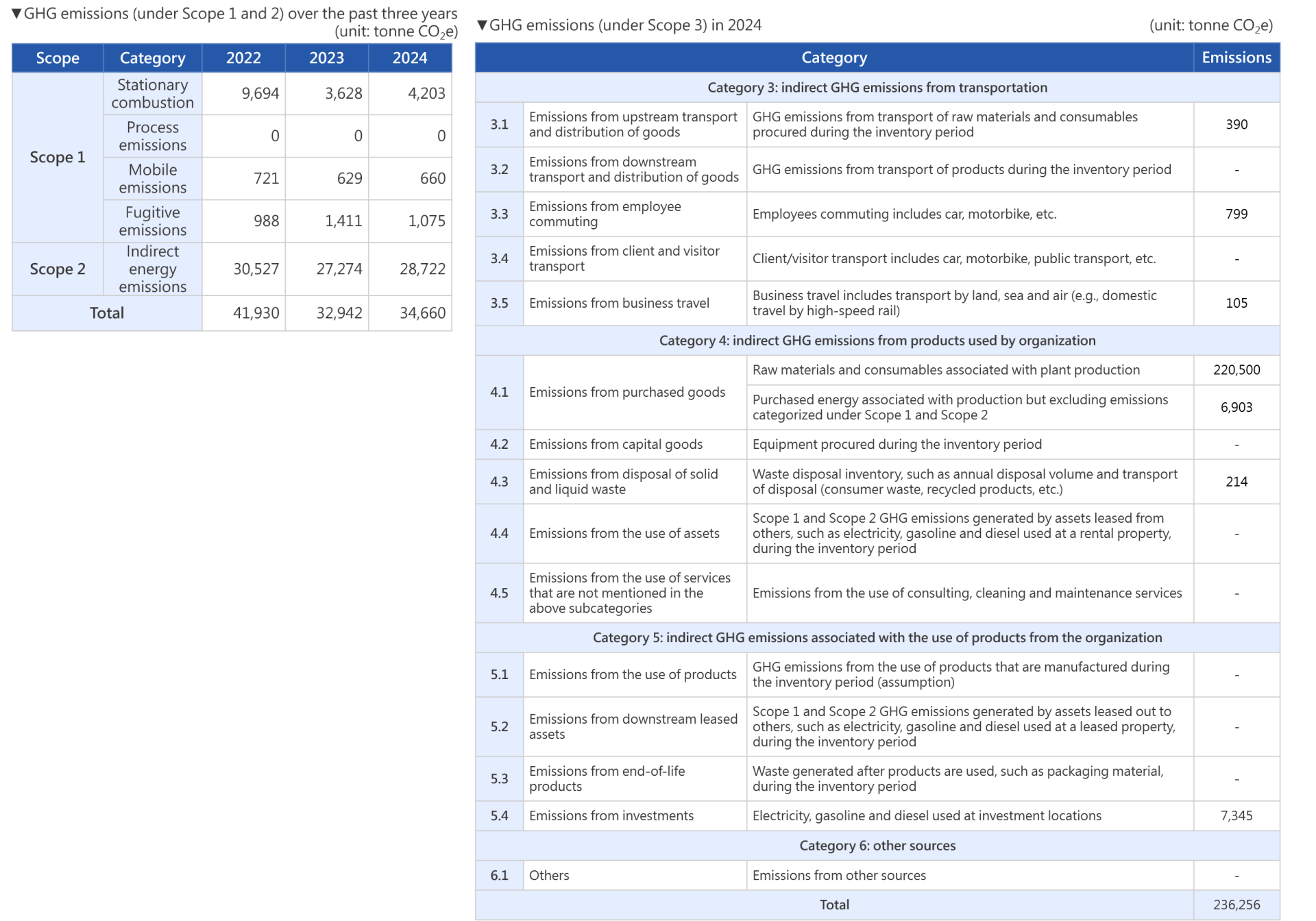
- GHG Emissions Verification Opinion Statement
Water Resources Management
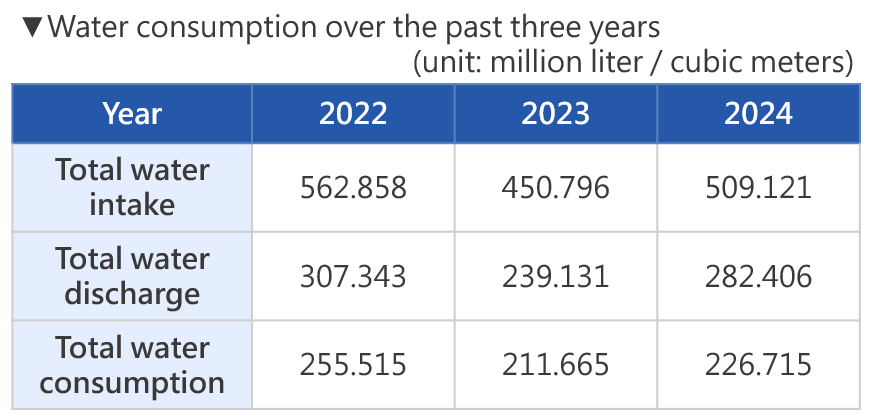
Waste Management
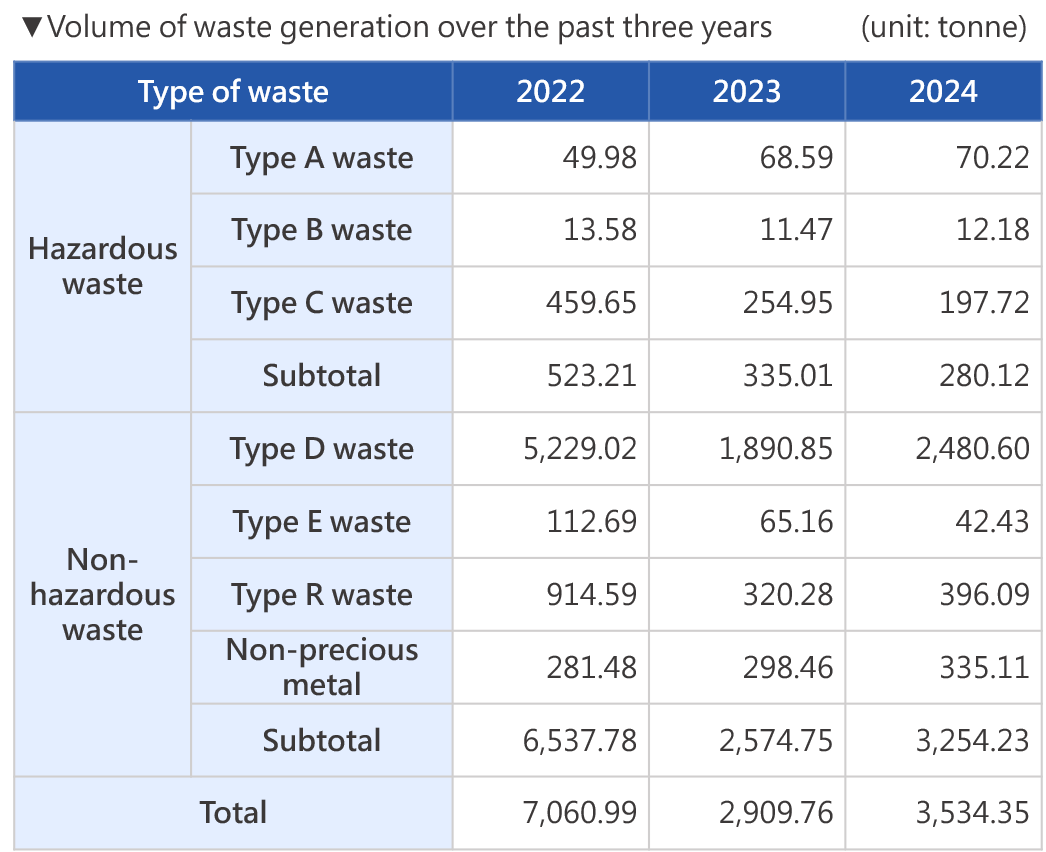
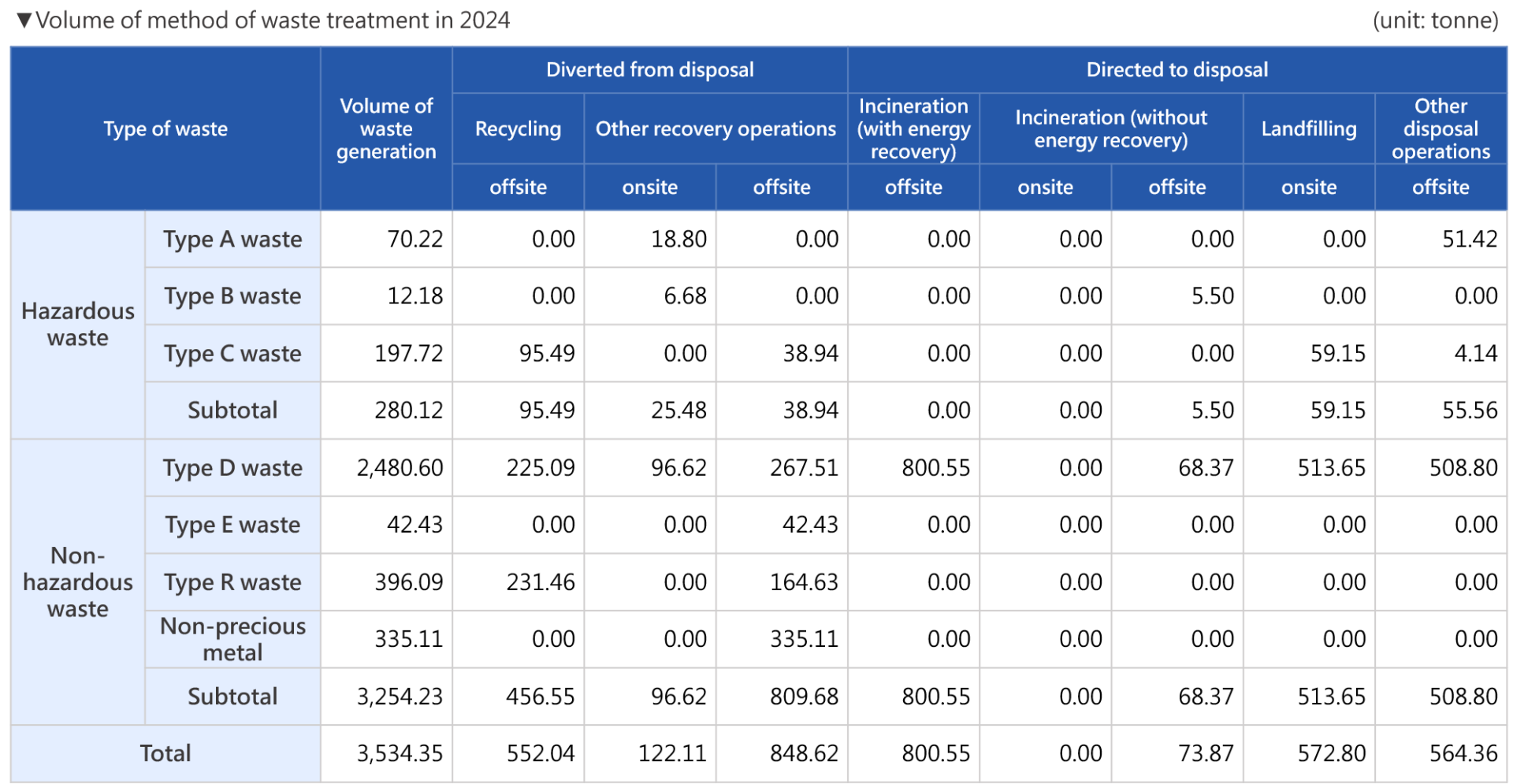
Pollutant Emission Management
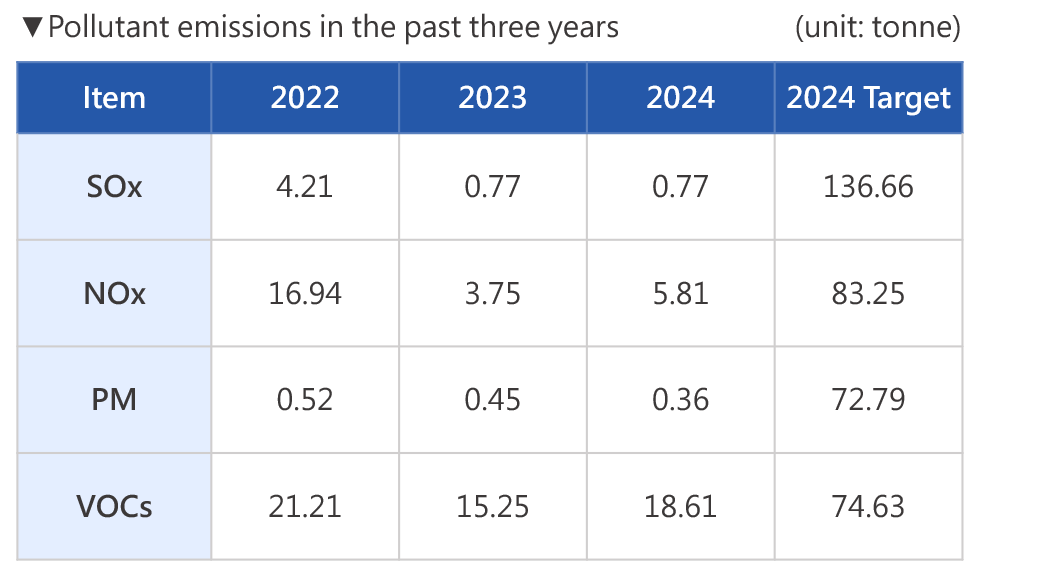
Hazardous Substance Management
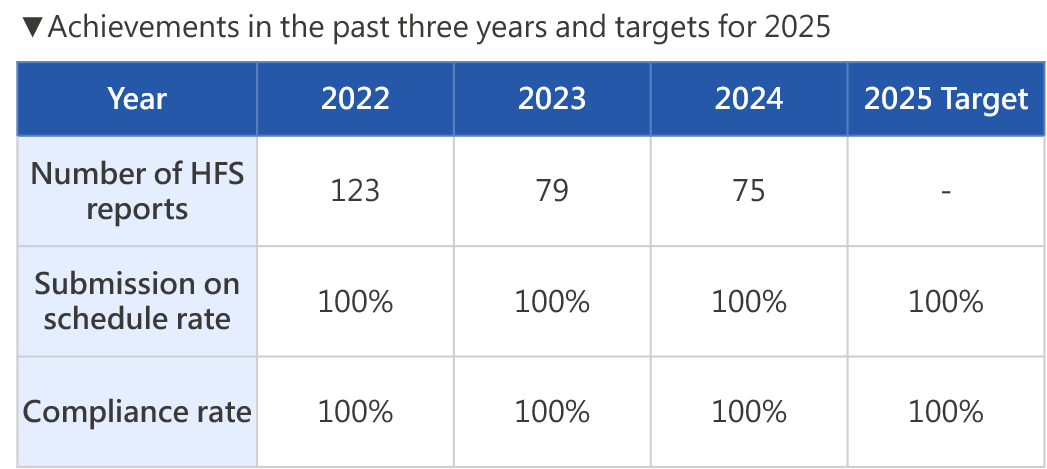
ISO 14067 Carbon Footprint of Products
SOLAR puts very much emphasis on issues related to climate change and the development of products to mitigate it. Therefore, SOLAR continues to conduct carbon footprint inventory and verification of our products. Since 2022, SOLAR has obtained carbon footprint data for at least eight key products in order to identify the hot spots of carbon emissions within the organization, and then they will serve as the bases of improvement in carbon reduction.
The carbon footprint of the following products has been obtained:



